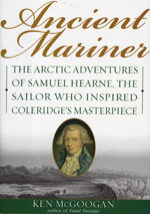In 701 B.C. the Assyrian empire was in its ascendancy. It had already vanquished the kingdom of Israel to the north including the capital at Samaria. It then prepared an assault on Judah and its capital at Jerusalem.
But in one of those significant events that changes the course of world history, Assyria was repelled. Jerusalem was saved until 586 B.C. when the Babylonians sacked the city, forcing its leadership class into exile.
Henry Aubin, in a major feat of scholarship, determines that Jerusalem was aided by a Kushite army from Africa which had marched northeast from the Nile valley. While the Bible attributes the Assyrian retreat to an angel and secular commentators cite pestilence, Aubin, in a meticulously documented work, demonstrates that an alliance with the African nation of Kush bolstered Jerusalem’s defences.
Kush, also known as Nubia, was located in what is now southern Egypt and northern Sudan. A monarchy that existed for more than 1000 years, from 900 B.C. to A.D. 350, Kushites held sway over Egypt from 712 B.C. to about 660 B.C. Of Egypt’s 31 dynasties, this, the 25th Dynasty, is the only one that all scholars agree, was black.
The commander of the Kushite expeditionary force was Taharqa (or as the Bible calls him Tirhakah). This Kushite prince, who had his own interests in halting Assyrian expansion, likely caught the aggressors by surprise as they prepared their siege of Jerusalem.
Aubin offers a thrilling military history and a stirring political analysis of the ancient world. He also sees the event as influential over the centuries.
The Kushite rescue of the Hebrew kingdom of Judah enabled the fragile, war-ravaged state to endure, to nurse itself back to economic and demographic health, and allowed the Hebrew religion, Yahwism, to evolve within the next several centuries into Judaism. Thus emerged the monotheistic trunk supporting Christianity and Islam.

“Brisk, readable books about Englishmen doing great things…don’t come much better than this.â€
The Observer “A gripping tale of genuine adventures, very well told.â€
Kirkus Reviews
Bantam Press UK 2004
Carroll & Graf USA 2004
HarperCollins Canada 2003
Ancient MarinerArctic adventures of Samuel Hearne, the sailor who inspired Coleridge’s poemThe life of Samuel Hearne is a story of love, friendship, heartbreak, and unspeakable brutality. Hearne, the first European to reach the Arctic coast of North America, made a remarkable 3500-mile journey over land in his quest for copper.
The harrowing expedition culminated in the infamous massacre of Bloody Falls in 1771. Later, Hearne was captured by the French in a siege against his Arctic outpost. He was torn away from his lover, a native woman, who tragically died before he could return to her.McGoogan argues that Hearne’s tale of horror and despair inspired Coleridge’s classic poem, The Rime of the Ancient Mariner.